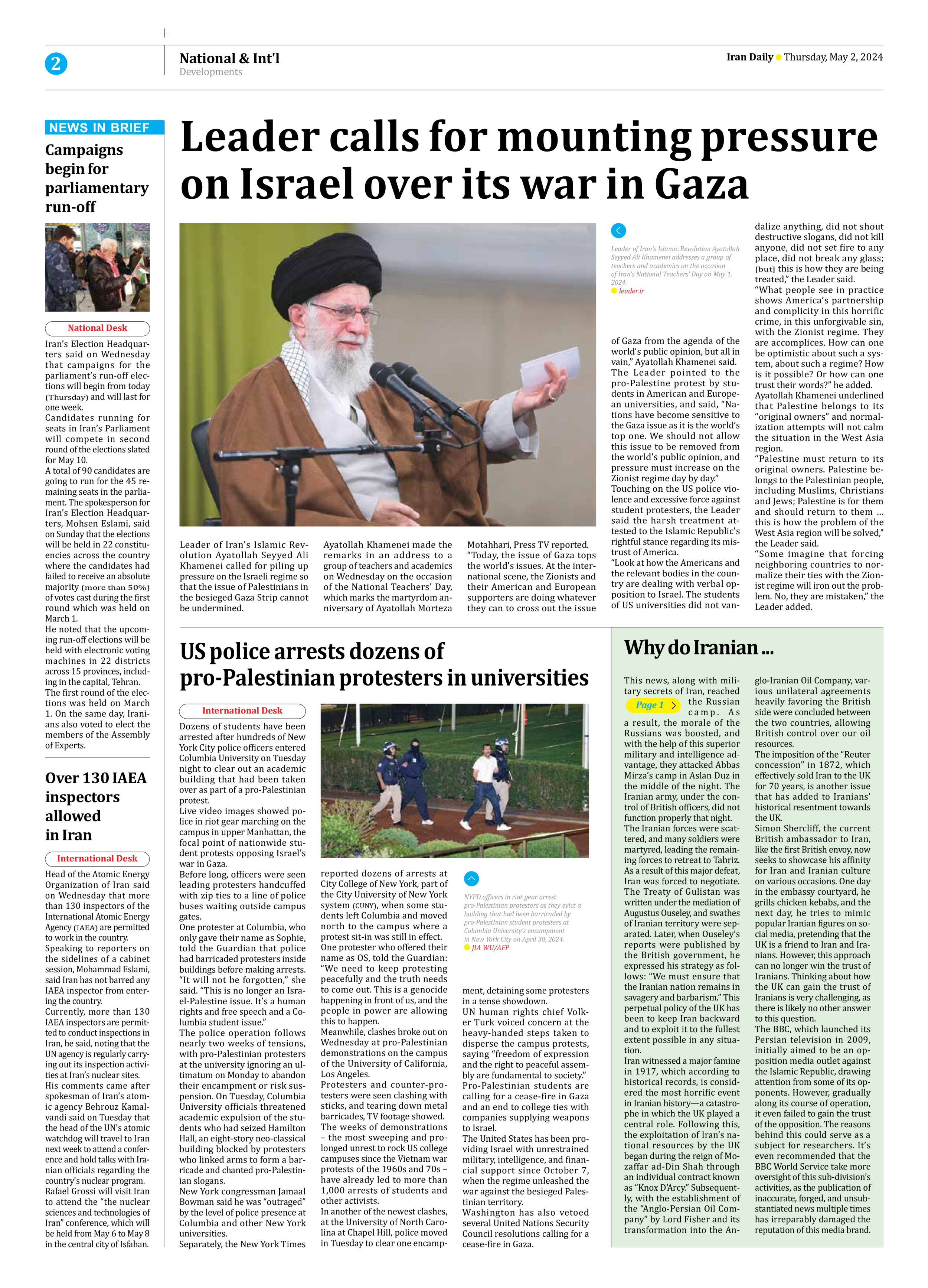
Why do Iranian ...
This news, along with military secrets of Iran, reached the Russian camp. As a result, the morale of the Russians was boosted, and with the help of this superior military and intelligence advantage, they attacked Abbas Mirza’s camp in Aslan Duz in the middle of the night. The Iranian army, under the control of British officers, did not function properly that night.
The Iranian forces were scattered, and many soldiers were martyred, leading the remaining forces to retreat to Tabriz. As a result of this major defeat, Iran was forced to negotiate. The Treaty of Gulistan was written under the mediation of Augustus Ouseley, and swathes of Iranian territory were separated. Later, when Ouseley’s reports were published by the British government, he expressed his strategy as follows: “We must ensure that the Iranian nation remains in savagery and barbarism.” This perpetual policy of the UK has been to keep Iran backward and to exploit it to the fullest extent possible in any situation.
Iran witnessed a major famine in 1917, which according to historical records, is considered the most horrific event in Iranian history—a catastrophe in which the UK played a central role. Following this, the exploitation of Iran’s national resources by the UK began during the reign of Mozaffar ad-Din Shah through an individual contract known as “Knox D’Arcy.” Subsequently, with the establishment of the “Anglo-Persian Oil Company” by Lord Fisher and its transformation into the Anglo-Iranian Oil Company, various unilateral agreements heavily favoring the British side were concluded between the two countries, allowing British control over our oil
resources.
The imposition of the “Reuter concession” in 1872, which effectively sold Iran to the UK for 70 years, is another issue that has added to Iranians’ historical resentment towards the UK.
Simon Shercliff, the current British ambassador to Iran, like the first British envoy, now seeks to showcase his affinity for Iran and Iranian culture on various occasions. One day in the embassy courtyard, he grills chicken kebabs, and the next day, he tries to mimic popular Iranian figures on social media, pretending that the UK is a friend to Iran and Iranians. However, this approach can no longer win the trust of Iranians. Thinking about how the UK can gain the trust of Iranians is very challenging, as there is likely no other answer to this question.
The BBC, which launched its Persian television in 2009, initially aimed to be an opposition media outlet against the Islamic Republic, drawing attention from some of its opponents. However, gradually along its course of operation, it even failed to gain the trust of the opposition. The reasons behind this could serve as a subject for researchers. It’s even recommended that the BBC World Service take more oversight of this sub-division’s activities, as the publication of inaccurate, forged, and unsubstantiated news multiple times has irreparably damaged the reputation of this media brand.
Page 1







